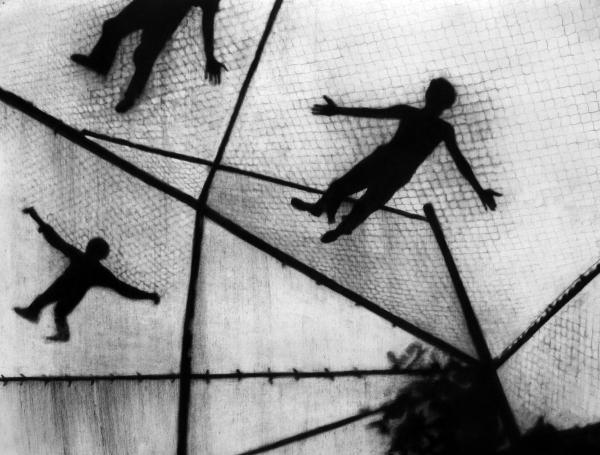In light of the refugee crisis that is dividing Europe, it is urgent to re-read the German born essayist Hannah Arendt. In one particularly enlightening chapter of her book on the origins of totalitarianism, she notes how a new category of human beings emerged in the 1930s: the “rightless”. These people were deprived of belonging to any political community and so also of legal protection, and we know what fate was reserved for them under the Third Reich and its cohorts.
Hannah Arendt describes the way people were progressively deprived of rights – rights that were supposed to be inalienable -, which led to the slaughter of millions of people. “Civil wars (…) were not only bloodier and more cruel than all their predecessors; they were followed by migrations of groups who, unlike their happier predecessors in the religious wars, were welcomed nowhere and could be assimilated nowhere. Once they had left their homeland they remained homeless, once they had left their state they became stateless; once they had been deprived of their human rights they were rightless, the scum of the earth. Nothing which was being done, no matter how stupid, no matter how many people knew and foretold the consequences, could be undone or prevented. Every event had the finality of a last judgment, a judgment that was passed neither by God nor by the devil, but looked rather like the expression of some unredeemably stupid fatality.”
Certainly, the circumstances of history are never the same. Despite the barbed wire fences of Prime Minister Orban around the borders of Hungary, Europe is not – or not yet – the same as in the 1930s and the years of war that followed. But some parallels are striking. After the First World War, the League of Nations (LN, predecessor to the UN) drew up mechanisms for the protection of minorities through treaties that were duly ratified by the new countries of east and central Europe, fundamental rights for all the population including minorities. The LN also created the Nansen passport in 1922 as a solution to the emergence of a new group of people, the stateless, i.e., Armenians fleeing persecution, Russians who had their nationality taken away by Lenin (the first to use the weapon of massive deprivation of citizenship), Spaniards fleeing the Franco regime, Jews who had their German nationality taken away, and others. That did not stop the “unredeemably stupid fatality” from happening.
In recent decades, the United Nations and Europe have adopted many rules that are now under severe stress. The Dublin II agreements, which say refugees must file asylum requests in the first Schengen country they arrive in, have proven unworkable in the face of half a million people fleeing war. The principle of the right to asylum is being questioned by certain countries that don’t want refugees from the Middle East, or at least only a few, provided they are Christian. The principle of responsibility to protect, solemnly endorsed by the States in 2005, has fallen by the wayside, despite 250,000 dead in the Syrian conflict, the vast majority of whom are civilians. Europe is now cornered. It must rise to the challenge of protecting the most vulnerable, which it was unable to do in the 1930s.
Arendt showed how social death – when you are deprived of belonging to a political community – can lead to the final solution: physical liquidation. In 1936, French leader Léon Blum issued a solemn warning to those who wanted to shut the door on refugees and who continued to think that being cowards would bring them security. It didn’t happen. In democratic countries, the threat of totalitarianism, nationalism and fear of invasion broke down the system of protection for minorities and stateless people. And even if the first victims of war are the most vulnerable – the “rightless” -, it doesn’t spare the others either.
When Hannah Arendt used the paradoxical term rights of the rightless, she was not only fingering the failure to protect fundamental rights and implement them for certain displaced groups removed to the margins of humanity. She was inviting everyone –the “rightless” along with everyone else – to think about this condition in political terms and draw consequences for the future of society. Throwing people out of society is not only to condemn them to a bare life but also to undermine the democratic values of the majority. Léon Blum was right. Cowardliness does not bring security.







